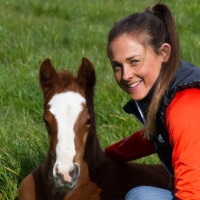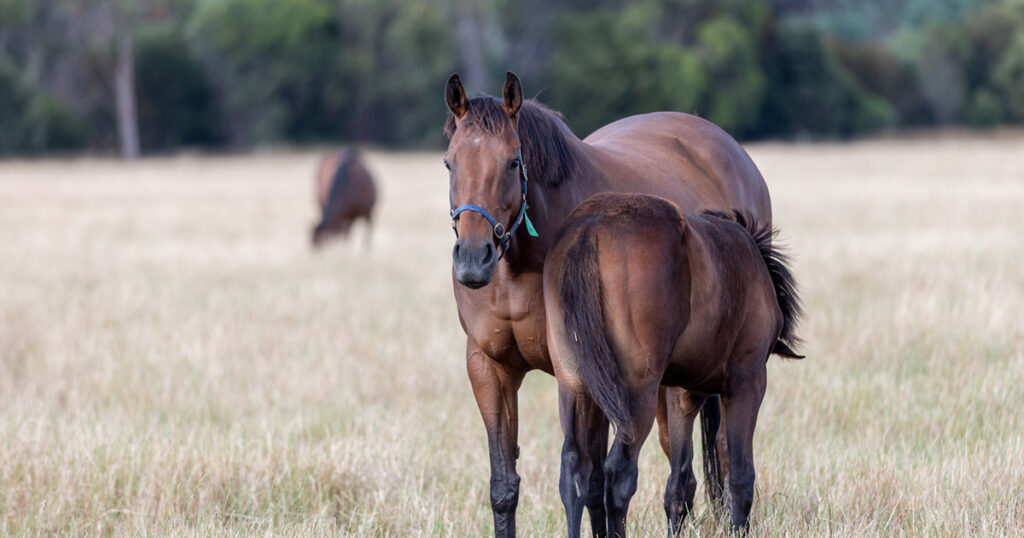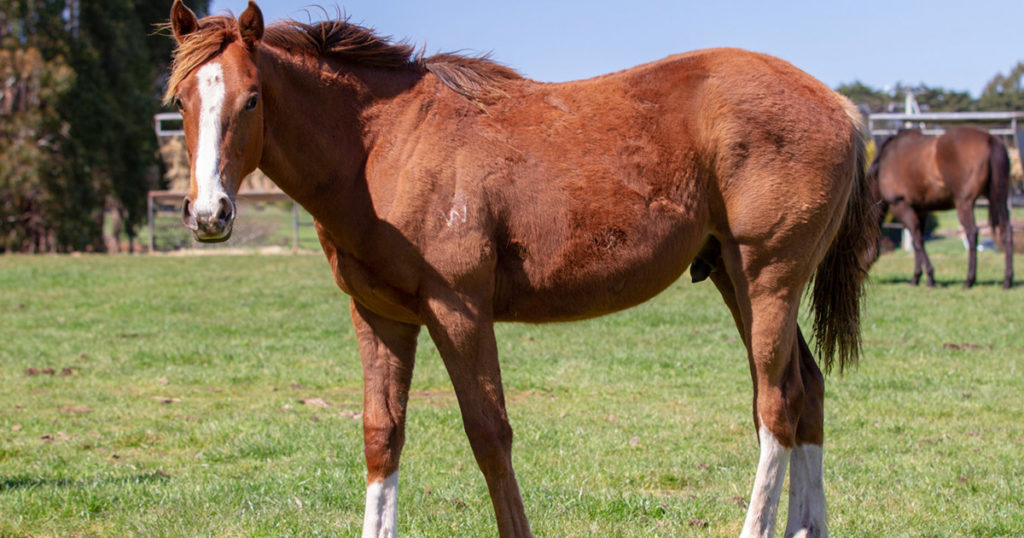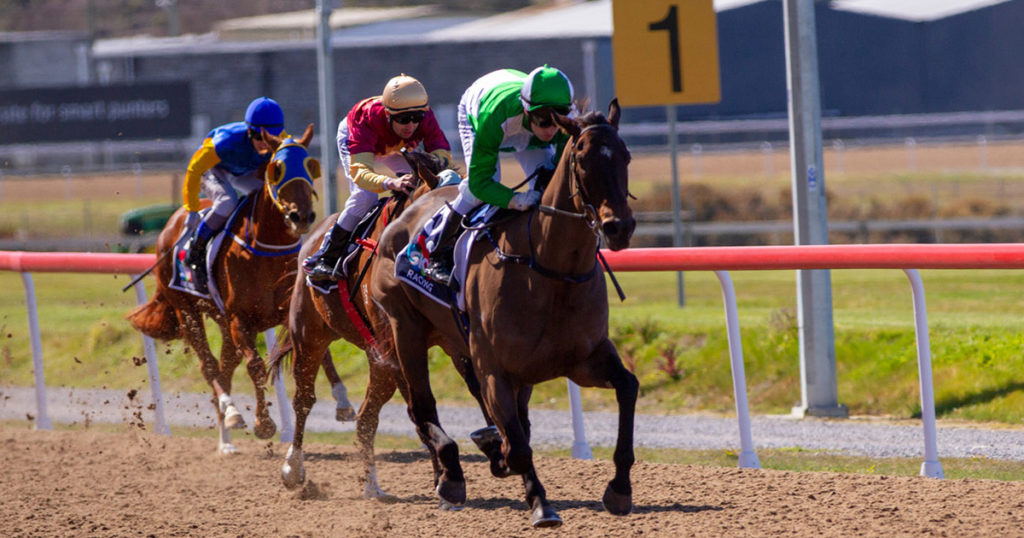A mare’s nutritional requirements vary throughout different stages of her pregnancy, with the last three to four months placing the most significant nutritional demands on the mare. This is a stage where reevaluating a mare’s feeding regime is crucial to ensure the best long-term health and development of her offspring.
Research has demonstrated that during the last three to four months of pregnancy, the developing foetus will gain approximately 70-80% of its birth weight! To support this rapid foetal growth, a pregnant mare’s nutritional requirements greatly increase.
Without a mare receiving proper nutrition during this important phase of pregnancy, her foal’s long-term health and development may be compromised. Such nutritional implications are associated with a predisposition for skeletal growth disorders (such as osteochrondrosis and osteochondritis dissecans [OCDs]) in her offspring.
Appropriately feeding a mare during this phase can become challenging- especially when she is a ‘good-doer’ or has a tendency to get fat: research has demonstrated that another risk factor predisposing young horses to orthopaedic development disorders is being born to mares who carry excess body weight (and particularly body fat) during pregnancy. Keeping such mares at a healthy bodyweight is even more difficult in areas where there is abundant pasture. Unfortunately, however, pasture alone will not meet a mare and her developing foetus’ nutritional requirements. Nor will the provision of a mineral salt lick/block.
There is a happy balance however, to support a mare and her developing foetus’ nutritional requirements, whilst also ensuring a mare is kept at a healthy body weight and condition. This helps to give a foal its best chance at life and healthy orthopaedic development and is one critical strategy to help prevent orthopaedic developmental disorders as the foal grows and matures. It is also one of the most important factors to assist a mare getting back in foal, should she be covered or inseminated again.
The long-term health and athletic performance of our horses starts with conception (and even pre-conception). To learn more about how we can help your horses visit our services page.

Camilla Whishaw is a highly regarded, experienced horsewoman and naturopath, helping to holistically treat and manage a broad range of equine health conditions and injuries, with a passion for mare and stallion fertility.
As a world-renowned practitioner, presenter, author, and consultant in the field of Equine Naturopathy, Camilla shares her knowledge through keynote presentations, interviews, lectures, panel sessions, and workshop training.





